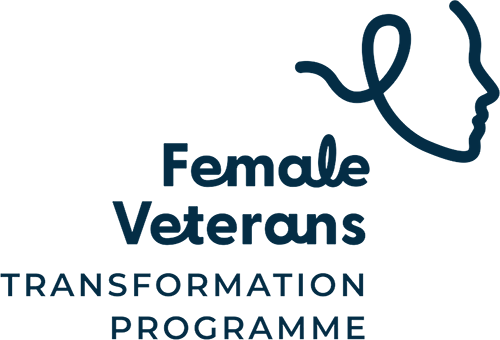The Female Veterans’ Transformation Programme wants to work with you!

We need your help to co-produce a toolkit for use by service providers in the commercial, statutory and charitable sectors, helping transform service provision for female veterans – the 250,000 strong group whose specific needs are not being addressed by current service provision. The toolkit could be a digital resource, awareness-raising resources, or an interactive app. The 3-year, UK-wide and tri-service programme is funded by the Armed Forces Covenant Fund Trust and NHS England, in partnership with the Cobseo Female Veterans Cluster and the Women’s Royal Army Corps Association.
“The programme aims to build a legacy where female veterans feel confident to access the right support, at the right time, and in the right way for them,” Colonel (Retd) Alison Brown OBE, Chair of the Cobseo Female Veterans’ Cluster Group
- Are you a female veteran? If you have ever served, whether for one day or 22+ years, we would love to hear from you, even if you have never accessed support services
- Are you a service provider, employer or charity that work with female veterans?
Please head over to our website and complete the relevant questionnaire to help us find out: ‘What does ‘good’ look like for female veterans services?’. You are the experts on service provision for female veterans and we can’t do this without your voices.
📝 If you are a female veteran and also work providing services to female veterans, employ female veterans or work in a charity working with veterans then please complete both questionnaires.
📝 If you are part of an organisation that does not identify as veteran-facing but nonetheless may have female veterans as employees or clients please complete our questionnaire also as we would love to hear from you too.
We know that you have probably been asked for your opinions and views A LOT and may feel like there is ‘no point’ or ‘no-one ever listens’, so we agave committed to produce a ‘you said…..we did’ response to the co-production which will eventually be available on our website for you to see and to check we listened.
We will be running face-to-face and online focus groups across the summer so please register your interest in taking part in a focus group on the website too.
If you have a recent focus group report about the experiences of female veterans then please send it our way. If you are running focus groups or having an informal gathering of female veterans for a coffee and you might be able to incorporate our questions, check out our facilitator’s pack providing guidance on how you could do this.
Your opinion matters so any information you can provide will go a long way to helping other female veterans in the future. Thank you.


